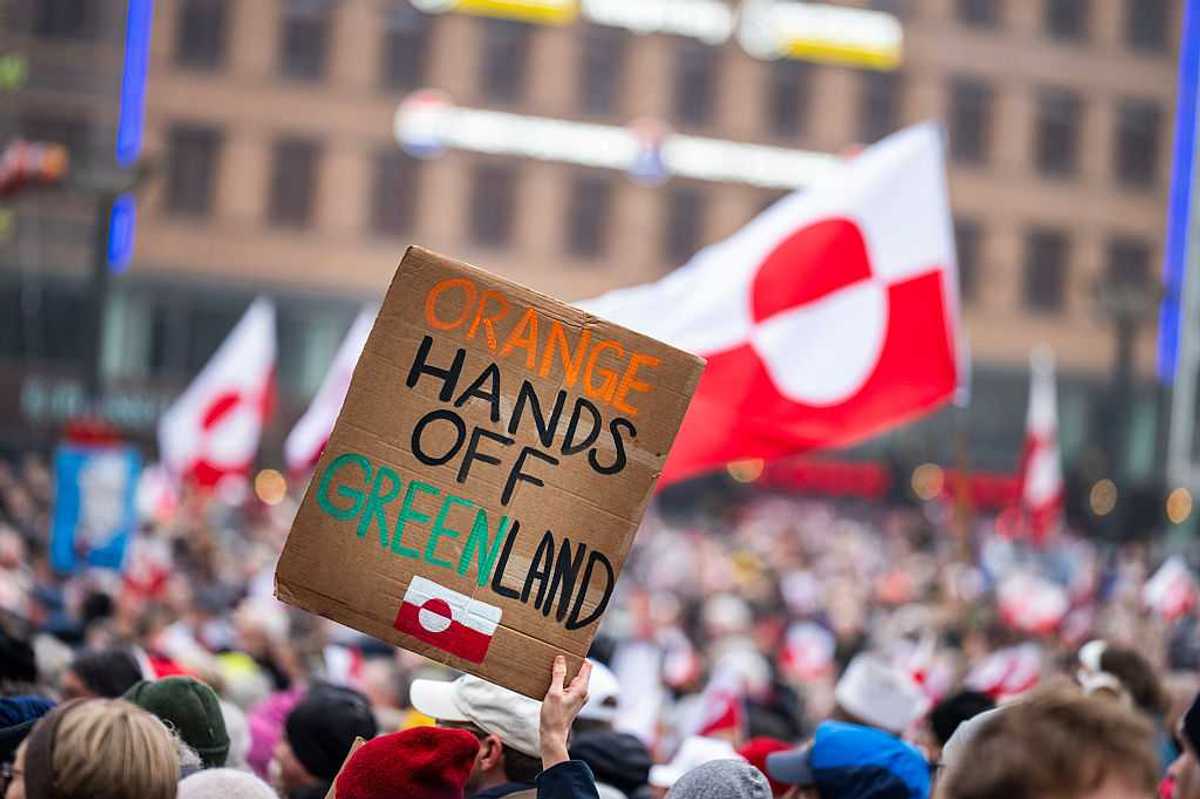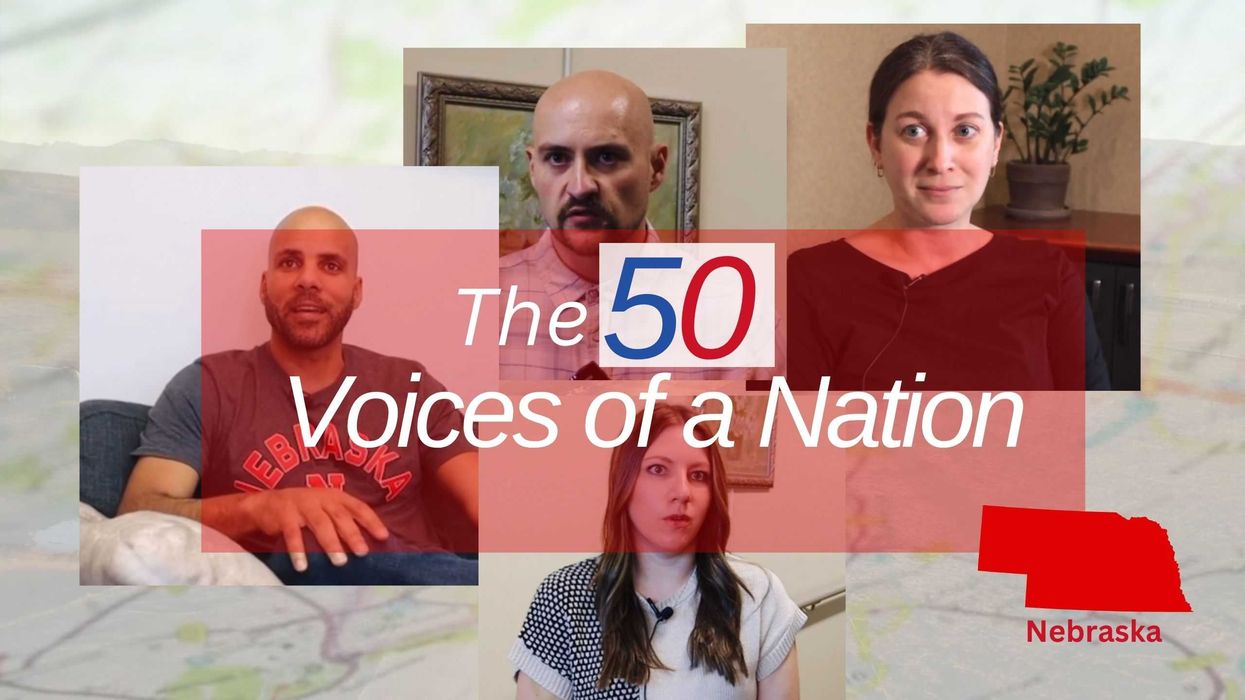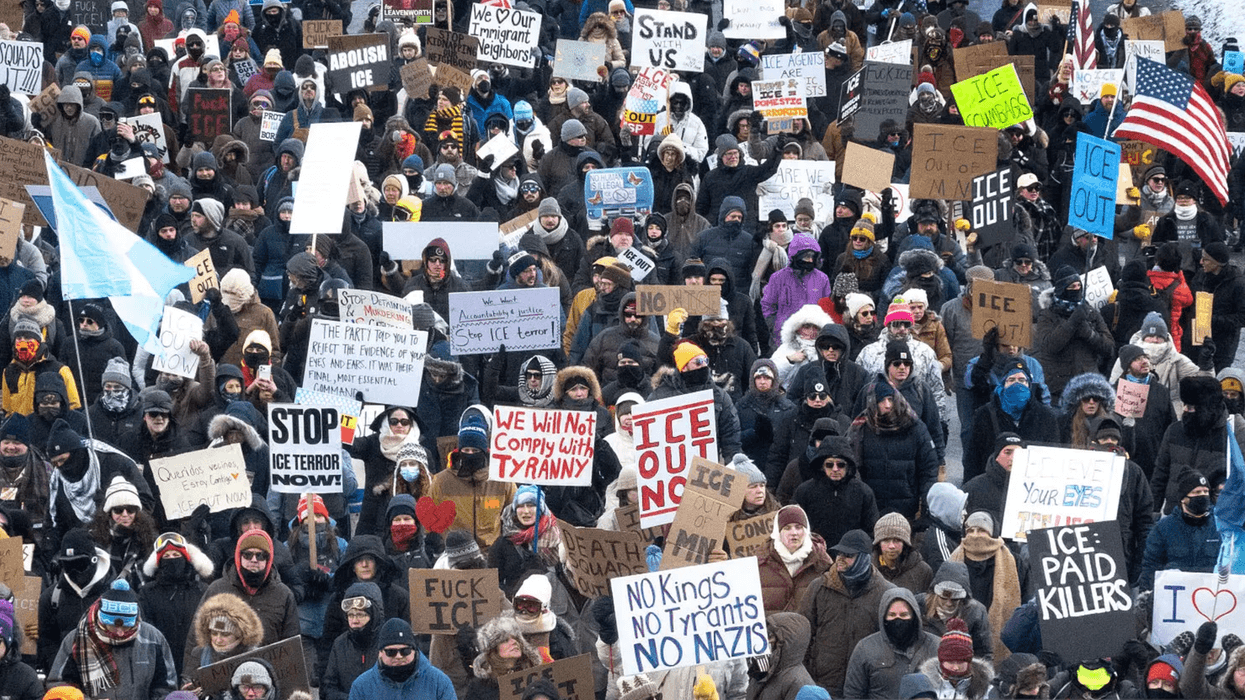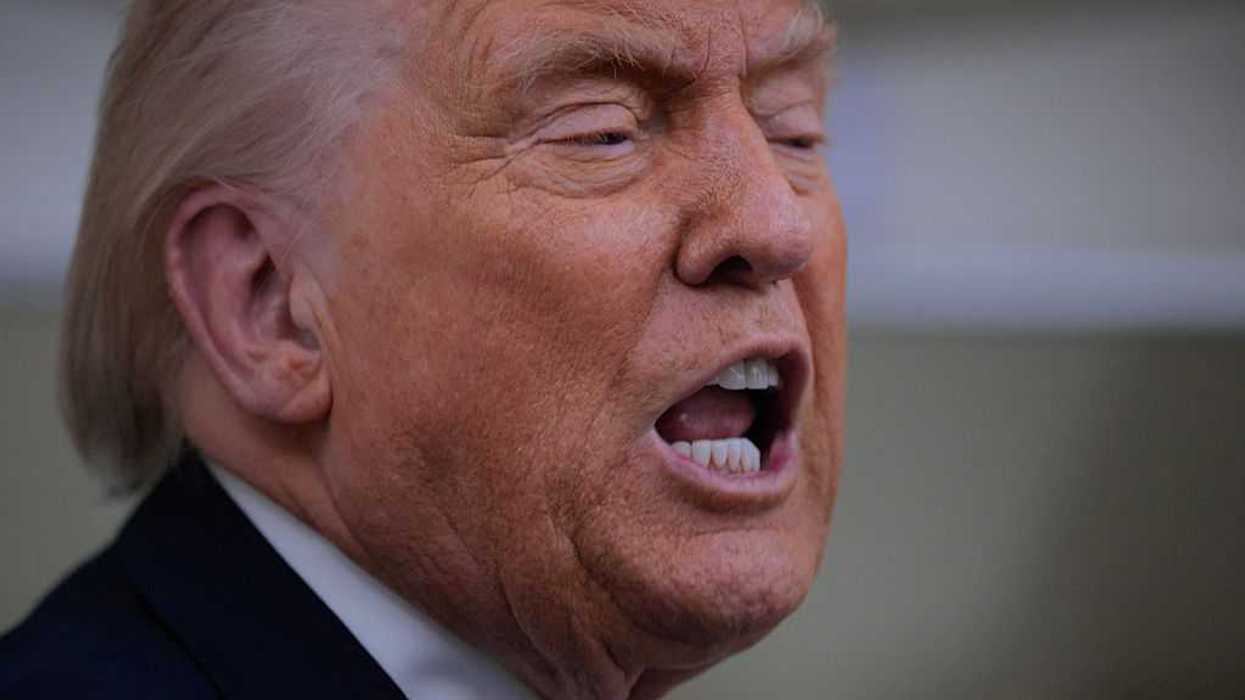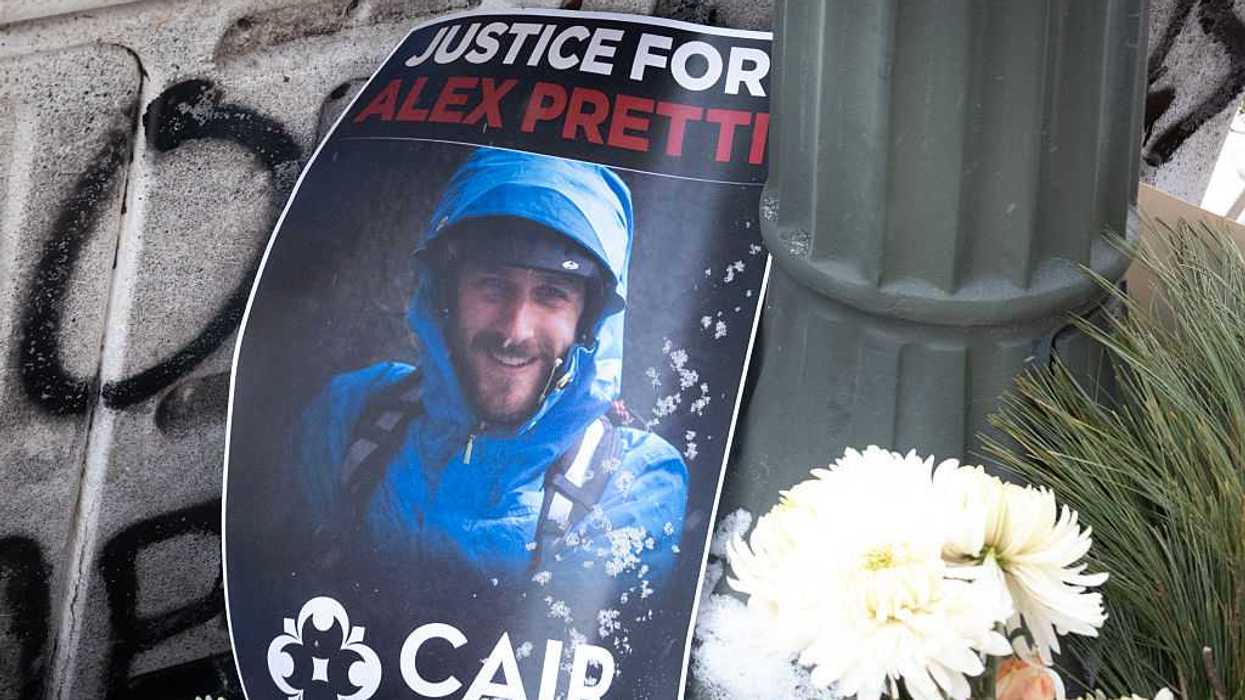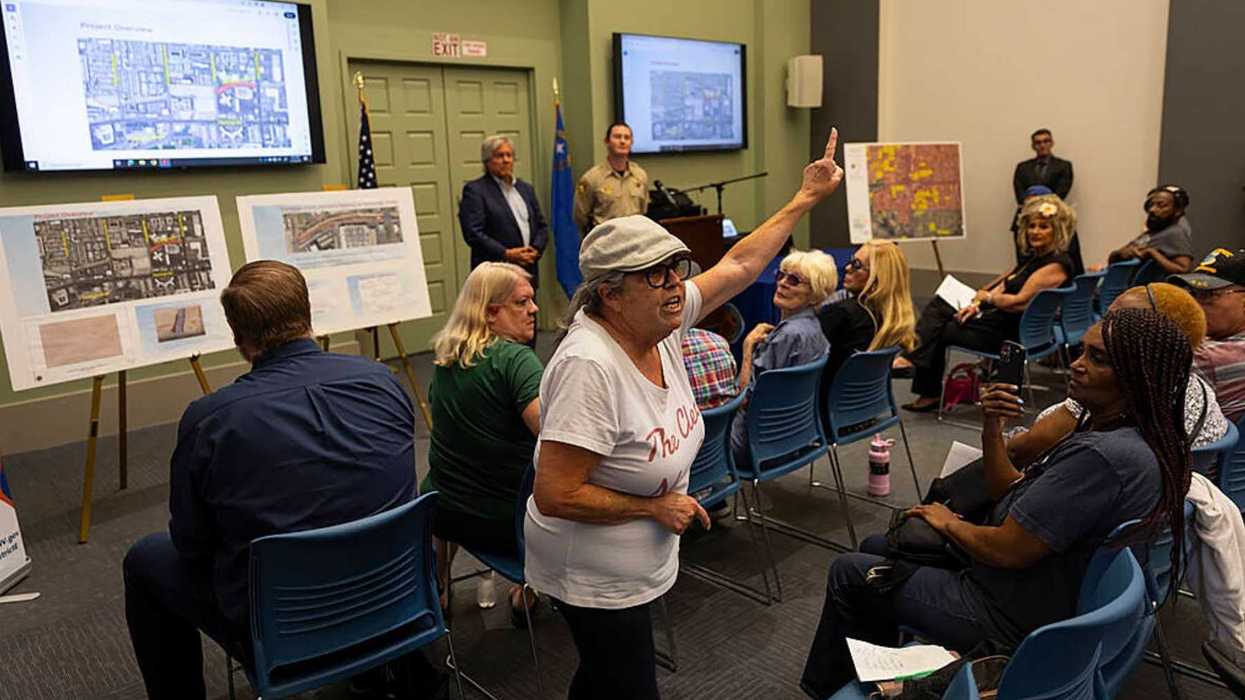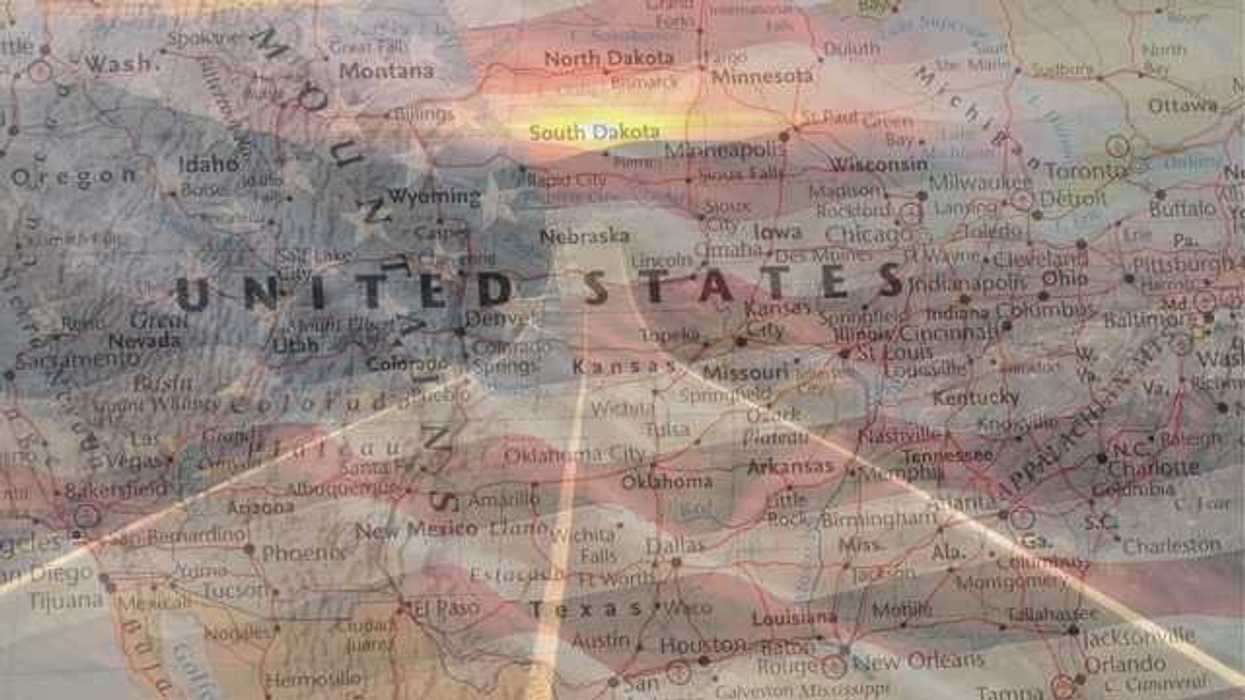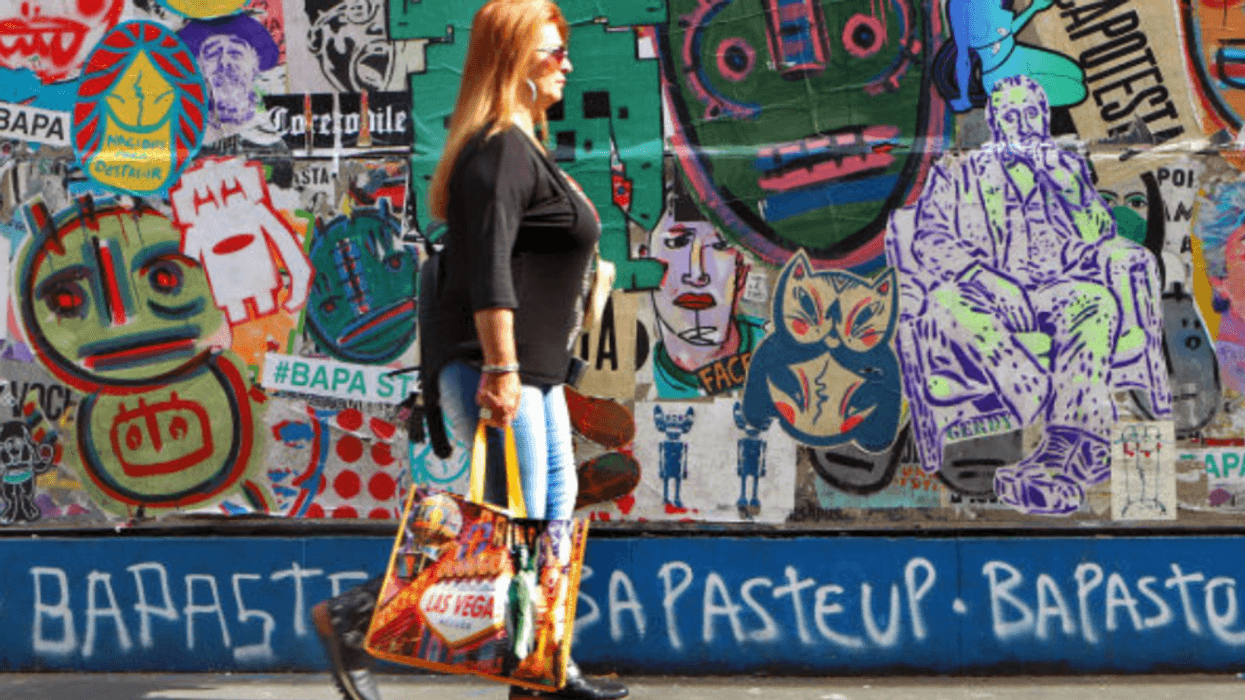The 50 is a four-year multimedia project in which the Fulcrum visits different communities across all 50 states to learn what motivated them to vote in the 2024 presidential election and see how the Donald Trump administration is meeting those concerns and hopes.
Lincoln, Nebraska—a vibrant Midwestern city—features a diverse economy supported by strong government, healthcare, and technology sectors. As the home of the University of Nebraska–Lincoln, it also serves as a regional center for education, research, and innovation.
In the 2024 U.S. presidential election, Lincoln leaned Democratic, with a majority of voters casting their ballots for Kamala Harris. The outcome reflected the city’s progressive urban identity, which contrasts with Nebraska's broader political landscape.
Statewide, Nebraska reaffirmed its Republican roots, with Donald Trump securing 59% of the vote compared to Harris’s 39%, continuing the state’s long-standing trend of favoring GOP presidential candidates.
Two leading organizations—Civic Nebraska and the ACLU of Nebraska—are champions of voting rights, civic education, and democratic inclusion. Their collaborative efforts have not only removed longstanding barriers to voting but also empowered thousands of underrepresented Nebraskans to engage in the democratic process fully.
- YouTube youtu.be
A Landmark Victory: Legislative Bill 20
One of the most significant achievements in recent years was the passage of Legislative Bill 20 (LB20) in 2024. This bill eliminated a two-year waiting period that had prevented individuals with felony convictions from voting after completing their sentence. Previously, Nebraskans had to wait two years post-sentence before regaining their right to vote—a policy that disproportionately affected marginalized communities and hindered reintegration into civic life.
Civic Nebraska and the ACLU of Nebraska played pivotal roles in advocating for LB20. They worked alongside a bipartisan coalition of lawmakers, including State Senators Justin Wayne and Jane Raybould, to promote the bill as a step toward a more inclusive democracy.
"It's an opportunity to put my voice in. A chance to feel that I am part of society," said Jason Wtimer, Policy Strategist for the ACLU of Nebraska. Witmer’s commitment to restoring voting rights is deeply informed by his personal journey, including time spent in prison and solitary confinement. He was recently recognized for "for his tireless advocacy in criminal law reform, voting rights restoration, and the rights of currently incarcerated Nebraskans."
Grassroots Mobilization and Civic Education
Beyond legal advocacy, both organizations have invested heavily in voter outreach and education. Civic Nebraska runs programs that build youth civic leadership, strengthen civic health, and protect voting rights. Their initiatives include election observation, community organizing, and the publication of the Nebraska Civic Health Index, which helps communities identify areas for civic improvement.
"Our civic health program really focuses on the main four pillars that we often look at: social connection, civic engagement, political activity, and confidence in institutions," said Civic Nebraska's Executive Director, Nancy Petitto. "Every community across our state looks so different. We have our urban and metro areas with higher populations, and then we have our rural communities and small communities. We want to make sure that civic health is strong across all of those different neighborhoods, cities, towns."
The ACLU of Nebraska has also launched major voter education campaigns, including outreach efforts targeting historically disenfranchised communities. Their campaign used billboards, mailers, phone calls, and digital media to ensure voters had the information they needed to register and vote confidently.
Both organizations prioritize equity and inclusion. By removing barriers and providing resources, Civic Nebraska and the ACLU of Nebraska are helping to ensure that all Nebraskans—regardless of background—can participate in shaping their communities and futures.
The success of LB20 is a testament to the power of grassroots advocacy, legal strategy, and bipartisan cooperation. As Nebraska prepares for future elections, Civic Nebraska and the ACLU of Nebraska remain committed to defending voting rights, educating citizens, and building a democracy that reflects the voices of all its people.
"The goal is to continue to develop our leaders," said Allan Chlopek, Rural Civic Health Program Manager with Civic Nebraska, about The Idea of America Fellowship. "I really hope this program and fellowship can help demystify leadership. We are all capable of being leaders."
Both organizations serve as models for how local organizations can drive meaningful change and ensure that democracy is not just a concept but a lived reality for everyone.
Other Episodes To Watch:
From Enforcement to Empowerment: Milwaukee’s Public Safety Reimagined
Connecticut: Democracy, Innovation, and Economic Resilience
Empowering Citizens in Illinois: How Community Television Strengthens Democratic Voices
Community Policing in New Jersey Strengthens Trust With the Public
Improving Infrastructure In Washington To Benefit Both People and Nature
Concern Over Education and Family Services in Rhode Island
In Swing-State Pennsylvania, a Latino-Majority City Looks Back at the 2024 Election
Hugo Balta is the executive editor of the Fulcrum. He is also the publisher of the Latino News Network.



